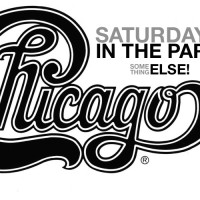While 1980’s Chicago XIV is a respectable album, it lacks the cohesion that was present under the guidance of James William Guercio and was later restored by David Foster with Chicago 16.
Phil Ramone proved adept and accomplished while guiding the single ego of Billy Joel in the late ’70s, but tackling the multiple personalities that made up Chicago in the studio was too big for him to tackle. Much like Donnie Dacus, he was shown the door following the too-many-noses-on-the-mirror mess known as 1979’s Chicago 13.
So, out with Ramone, in with Tom Dowd. Whereas Ramone leaned more toward a polished disco sound, Dowd opted to abandon that approach entirely. Instead, he tried to tap into the more raw, primal energy of punk and New Wave that started to bubble to the surface as disco was in its death throes.
The rather Terry Kath-esque Chris Pinnick was brought in to play guitar after Dacus’ departure. Foster gets plenty of praise for what he did on Chicago 16-18, but as a keyboard player he unfortunately buried the guitar work of Chris Pinnick and Steve Lukather deep in the mix. Dowd, on the other hand, kept Pinnick’s playing front and center. As a result, it’s much easier to fully appreciate Pinnick on Chicago XIV than it is on 16 or 17. Foster put so much more emphasis on the keyboards, and that came at the expense of the guitarists but also Chicago’s trademark horns.
Perhaps Chicago XIV falls short because it doesn’t sound like a Chicago album: It sounds like half of a Robert Lamm solo project and half of a Peter Cetera solo album, loosely held together by the horn section. Which brings us to “Hold On.”
On the original vinyl and cassette versions of Chicago XIV, “Hold On” opened Side 2 – and it’s a scorching intro to what is easily the album’s stronger half. Out of the gate, this song is both full of piss and vinegar and a lot of fun. It feels like a preview of Cetera’s first solo album, which would be recorded and released the following year. (Of course, had it appeared on Peter’s debut, he likely would have dropped the horns completely.)
One could argue that Peter Cetera sounds like he was having the most fun he’d had since before Kath passed. There’s an edge to “Hold On” that had been conspicuously absent ever since.
Where the song – and, arguably, Dowd – fails is with the horns, which feel like a totally unnecessary afterthought. It’s as if they’re only there as a reminder that this is a Chicago album, and not the mishmash of solo projects that it ended up sounding like. One can almost picture the horn section waving their arms frantically in the background yelling, “Hey, we’re still here!” Instead, “Hold On” seems to be trying to shed and chug along without them.
It certainly would have been interesting to see the direction Chicago would have gone had they continued with Tom Dowd beyond this one album, but in the end that was not to be. After the colossal failure of Chicago 13, they needed a massive hit to stay in Columbia Records’ good graces. That didn’t happen.
Chicago XIV was, of course, an improvement over 13 – largely because of songs like “Hold On,” “Manipulation” and “Overnight Cafe.” But it was not the smash hit that Chicago needed it to be. The band had been coasting on fumes since Terry Kath’s passing, and XIV marked the last gasp of their relationship with Columbia.
- The Most Surprising Moment on Alan Parsons Project’s ‘Eve’ - August 27, 2024
- Why the Audiobook Versions of Jimmy Barnes’ Autobiographies Are Definitive - June 24, 2024
- Kahvas Jute – ‘Wide Open’ (1970): Antipodean April - April 28, 2024


